How Does Facebook Really Make Money? 7 Main Ways

Facebook is completely free for users.
Because of this, you may be wondering how the company makes such a large amount of money ($70 billion US dollars in 2019).
To start with, it is actually a myth that Facebook sells data.
Instead, Facebook (META) makes most of its money by serving ads on the social media and messaging platforms it owns — Facebook, Messenger, Instagram, and WhatsApp.
Advertisers pay Facebook to make their ads visible to people. They can choose to "target" the ads by only showing them to people who fit certain characteristics. These include age, gender, country, interests, etc.
But the advertisers never get access to private user information, contrary to what some people say. They choose the targeting options, and Facebook then shows the ads to the right people based on automated computer algorithms.
In other words, Facebook does not "sell" data in any way. That is simply not how their business model works.
Facebook makes a lot of money
Facebook has 2.89 billion monthly active users across its "family" of products. Of these, 2.26 billion people use at least one of their products each day.
This means that Facebook reaches about 3/4 of the world's internet population.
Because of its massive user base, the company makes a lot of money from serving ads.
In 2019, Facebook's revenue was $70.7 billion US dollars, an increase of 27% from $55.8 billion in 2018.
Their profits in 2019 were $18.5 billion, a 16% decrease year-over-year because of some legal fines and big investments in privacy and security.
Here's a chart from Facebook's latest earnings release showing revenue growth in the past 9 quarters, from October 2017 to December 2019:
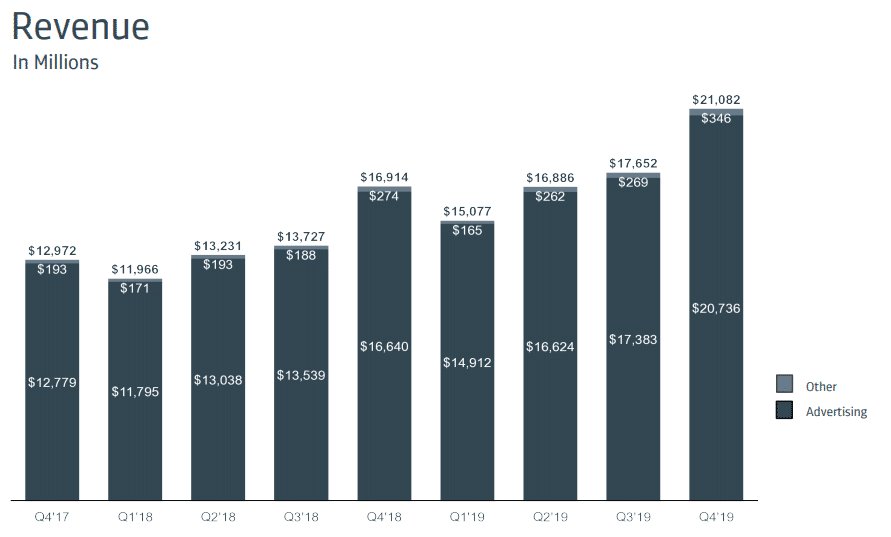
Facebook currently makes 98.5% of its money from digital advertising, mostly ads on Facebook and Instagram. They also own WhatsApp and Facebook Messenger, but these apps don't drive a lot of ad revenue yet.
Additionally, Facebook makes money from hardware products. They own the virtual reality headset maker Oculus and sell the Facebook Portal.
The company is also expanding into services like online payments, eCommerce, and business messaging. These services don't make much money yet but likely will in the future.
Here is a breakdown of the seven main ways that Facebook makes money.
1. Digital ads on Facebook and Instagram
About 98.5% of Facebook's revenue comes from ads on Facebook and Instagram.
Most of the ads are "pay-per-click," meaning that advertisers pay Facebook each time a person clicks on an ad.
Even though each click may not cost that much, it quickly adds up to billions of clicks and billions of dollars.
Advertisers who are interested in reaching people use Facebook's advertising tools to decide what kind of people they want to reach.
For example, here's what an advertiser from a luxury car company like Mercedes-Benz might decide to target:
- Location: United States
- Gender: Men
- Age: 30–60
- Interests: Luxury vehicles
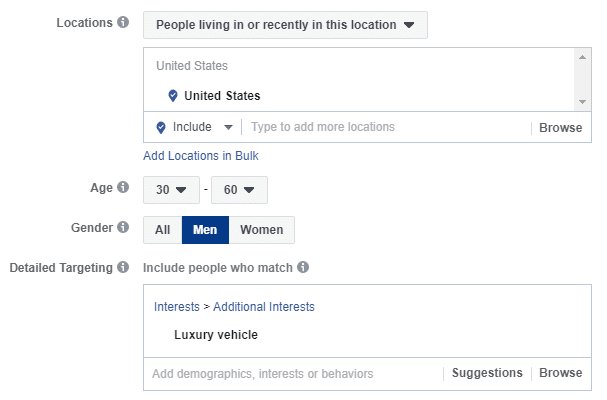
Advertisers can achieve a much higher return on investment by targeting their ads to people who are likely to be interested.
It is actually a myth that targeted advertising is "bad" in some way.
Most ads on the internet are targeted in one way or another. Facebook is just better at it than everyone else.
Given a choice, most users would rather see relevant ads instead of irrelevant ads. The relevance provides a better user experience than ads on TV, for example.
In addition, having access to such powerful advertising tools is very valuable for small to medium-sized businesses, which are now able to compete with big companies without having large advertising departments.
According to Facebook, there are now 8 million businesses globally that use their advertising platform.
Here's an example of an ad on Facebook, targeted to me because I have shown an interest in this product in the past:
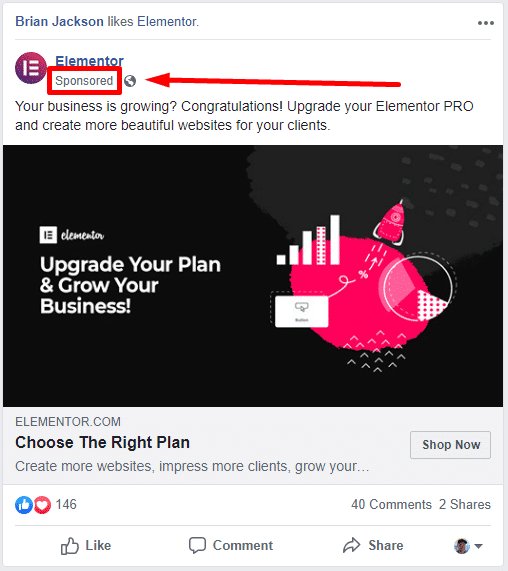
You can see that it's an ad by the "Sponsored" label at the top.
Same as with the Facebook platform, the company also makes money from ads on Instagram. They don't have a lot of ads on WhatsApp yet, so that platform doesn't contribute much revenue at the moment.
The ads in the old news feed on Facebook and Instagram make the most money, but ads in the disappearing Stories are also becoming much more popular and making more money each year.
Interestingly, most of Facebook's revenue now comes from ads on their mobile apps. This is a big change from the company's early days when most of the revenue came from the website.
However, Facebook has recently been rolling out privacy tools that allow users to prevent some of their data being used for targeted ads.
These privacy tools may become a headwind for revenue growth in the future. It could make targeted ads less effective and less popular with advertisers.
2. Oculus virtual reality headsets and apps

Back in 2014, Facebook acquired a company called Oculus for $2.3 billion.
Oculus is the global leader in making virtual reality headsets for consumers. Their top products are the Oculus Rift, Oculus Go, and the recently launched Oculus Quest.
Each Oculus headset costs several hundred dollars, so Facebook makes money for each unit sold. But Oculus also has an app marketplace where people can purchase apps and games to use on the Oculus headsets.
The revenue contributed by Oculus is relatively small compared to the advertising business. They don't say exactly how much it is, but it is probably a large percentage of Facebook's 1.5% non-advertising revenue.
Oculus is currently spending a lot of money on research and development, and they are also developing augmented reality (AR) headsets, which could become popular in the future.
The Oculus app marketplace could also become a big revenue driver eventually, similar to Apple's (AAPL) App Store and Google's (GOOGL) Play Store.
On their latest earnings call, Facebook said that the Oculus app store had $5 million in sales on Christmas day alone.
3. Facebook Portal smart video communication devices
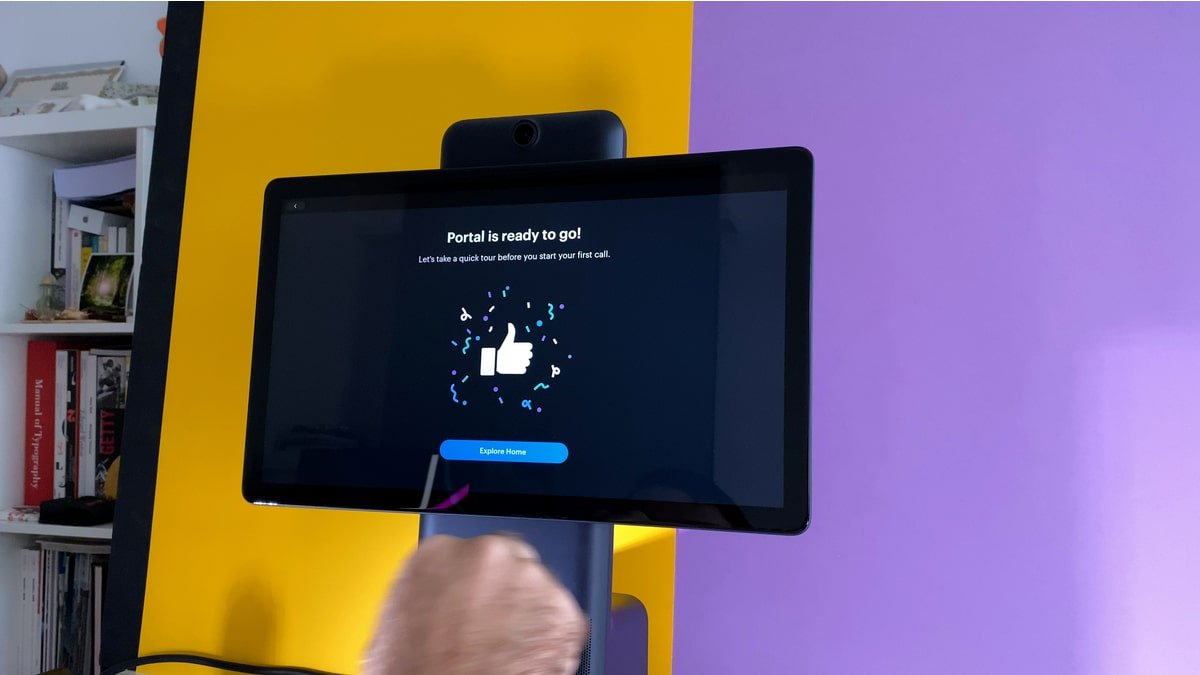
Facebook also makes smart video communication devices called Facebook Portal.
These are smart-home devices that enable you to communicate via video chat on Facebook Messenger and WhatsApp.
The device has a screen and a video camera that can follow you around as you walk around a room while video chatting with a friend or family member.
The Portal also has the Amazon (AMZN) Alexa smart home assistant built-in, so it also functions as a smart-home device. You can use it to ask for the weather, news, control your home lighting, etc.
Facebook does not say how much money they make from the Portal, but it's probably not much since the devices are fairly cheap.
The Facebook Portal devices have become very popular among certain groups — especially families that communicate a lot through video chat. They get very positive reviews online, usually 4.5 stars or higher on Amazon.
4. Payments and digital currency
Facebook sees a big market opportunity in digital payments and they recently started rolling out a new service called Facebook Pay.
They plan on having various payment features on their apps that enable users to send money to people and businesses.
Facebook is also developing a cryptocurrency called Libra, which has the potential to disrupt the global payment space in the future.
Using Libra, people may eventually be able to send money all over the world, instantly, with almost zero fees.
Eventually, payments may become a significant revenue source for Facebook.
5. Commerce on Instagram and Facebook Marketplace
One of the biggest growth areas online is eCommerce.
Facebook sees a big opportunity here because people already use their services to discover new products and shop.
The Facebook Marketplace platform already has hundreds of millions of users. Many brands and influencers also rely heavily on Instagram to market their products.
Facebook has already launched Instagram Checkout in the US. This makes it possible for some businesses to sell products directly through the platform.
Along with payments, this is an area that Facebook is investing in heavily. More features are likely to be rolled out soon.
6. Business messaging on WhatsApp and Facebook Messenger
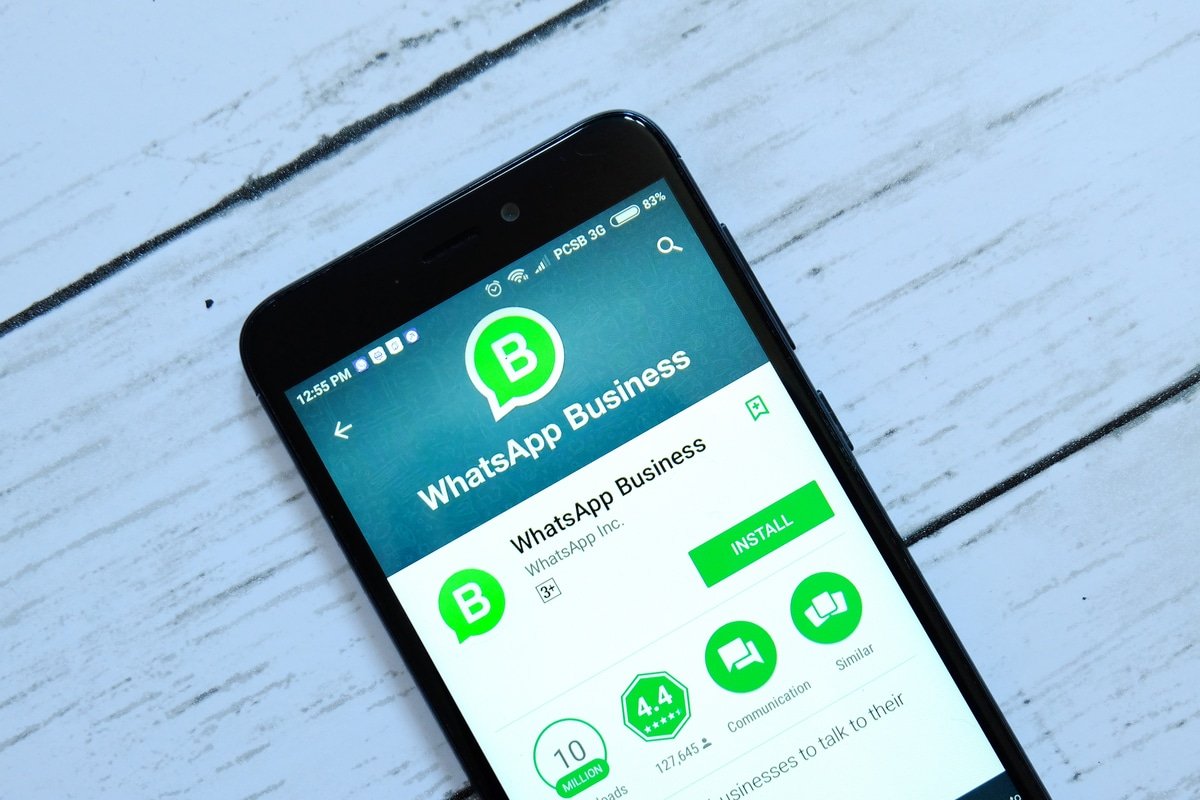
Another future monetization opportunity for Facebook is business messaging on WhatsApp and Facebook Messenger.
Many businesses are already using these messaging platforms to communicate with customers.
For example, many websites now have Facebook Messenger chat widgets that customers can use to send messages directly to sales or customer support.
The company is likely to find ways to monetize these features in the future. For example, they could charge businesses for premium features that enable them to improve their customer service.
7. Workplace by Facebook
Facebook offers a service called Workplace, which is a way for businesses to manage their internal communications.
This service competes directly with business communication services like Slack and Microsoft Teams.
Workplace has a free subscription option, but its advanced service costs $4 per month for each user.
There are over 30,000 businesses and organizations globally that use Workplace, including big companies like Starbucks and Walmart.
Back in February of 2019, Workplace had over 2 million paying users.
Other ways
One other way that Facebook makes money is by collecting interest on its vast cash reserves.
The company is so profitable that it is making far more money than it can spend. Because of this, it has about $56 billion in cash and cash equivalents.
Like other big businesses, Facebook stores most of its spare cash in financial products that pay interest, such as bonds and money market funds.
In 2019, Facebook made $826 million in "interest and other income" — which is mostly interest payments on its vast cash reserves.
The interest income was almost as big as their entire non-advertising revenue, which came in at $1,042 million in 2019.
Facebook's revenue breakdown per geography
Finally, here are some charts published by Facebook that show more details about the revenue breakdown.
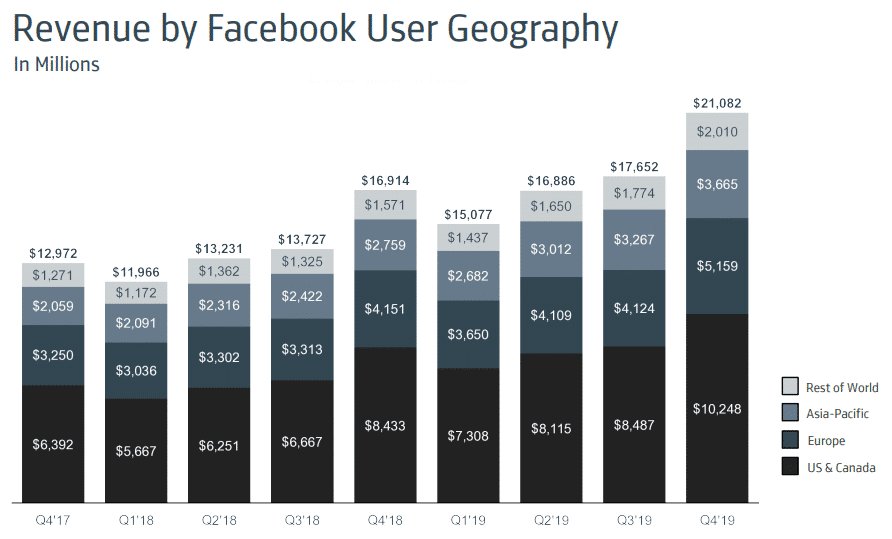
In 2019, Facebook had total revenue of $70.7 billion. Here is the breakdown by geography:
- US & Canada: $34.15 billion
- Europe: $17 billion
- Asia-Pacific: $12.6 billion
- Rest of World: $6.87 billion
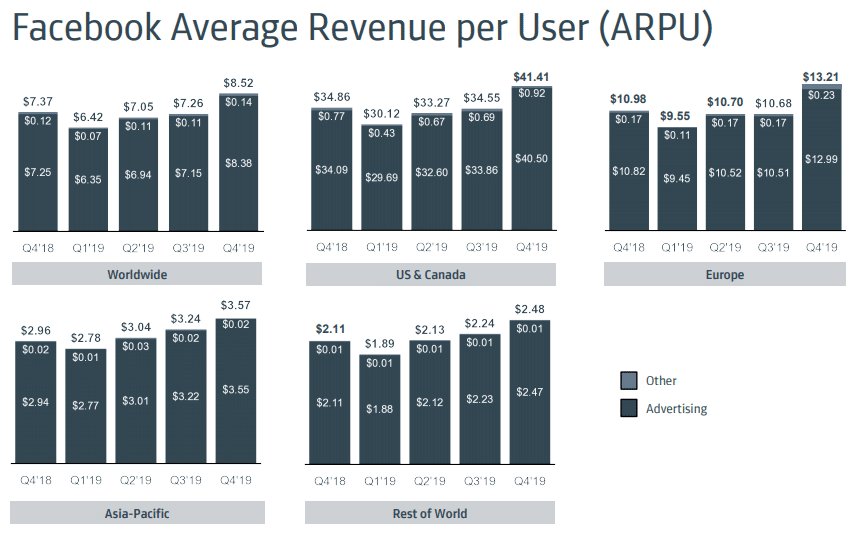
In 2019, Facebook made $29.25 US dollars in revenue per user, but this was heavily skewed based on user location:
- US & Canada: $139.35
- Europe: $44.14
- Asia-Pacific: $12.63
- Rest of World: $8.74
One of the ways Facebook makes more money each year is by increasing its average revenue per user. This number has been going up consistently over time.
The Bottom Line
Facebook is one of the biggest companies in the world.
They don't just own the Facebook platform, but also Instagram, Facebook Messenger, and WhatsApp.
In addition, they own the virtual reality headset maker Oculus and sell various other products and services.
Despite common belief, Facebook does not sell user data in any way. Almost all of their revenue comes from serving targeted advertising on their internet platforms.
Although Facebook currently makes most of its money from ads, the chances are that payments, eCommerce, and other services will become significant revenue drivers in the future.
With over 2 billion users per day and almost 3 billion users per month, Facebook has many different options to make even more money in the future.

